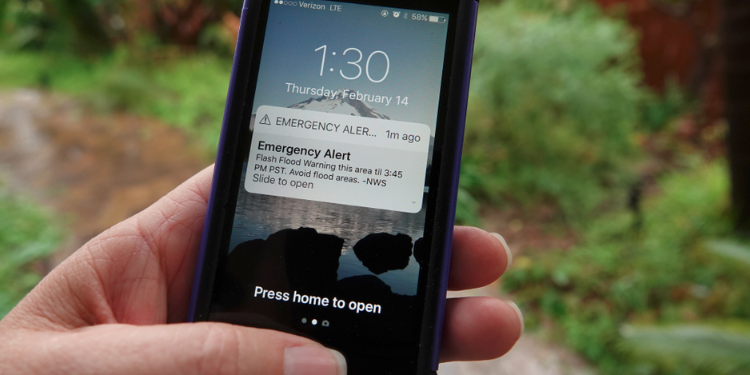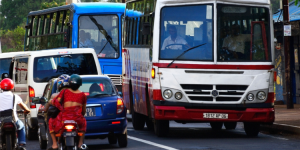
According to the United Nations (UN), the number of disasters worldwide is increasing each year. Expatriates may find themselves unprepared in emergency situations. Where and how can you obtain the latest information? How do you register for national foreign advisory services? Here are some practical tips.
The growing threat of natural disasters
In recent days, southern Brazil has been hit by torrential rains. As of Thursday, May 2, authorities have reported 66 deaths and 101 missing persons. Overnight from Wednesday, May 1 to Thursday, May 2, violent storms struck parts of France. In April, torrential rains caused over 140 deaths in Pakistan. Kenya, Tanzania, and Burundi were also affected by these deadly rains: more than 200 deaths in Kenya, over 150 in Tanzania, and over 100,000 people displaced in Burundi. East Africa is experiencing the devastating effects of the El Niño climate phenomenon. Earlier in April, Qatar, Oman, Bahrain, and the United Arab Emirates (UAE) experienced unprecedented rainfall. In Dubai, the amount of rain in one day was equivalent to two years of rainfall.
According to the UN's forecasts, the number of natural disasters could rise to 560 per year by 2030, up from 400 in 2015 -- which is alarming! Floods, storms, cyclones, tsunamis, droughts, and earthquakes are the most common natural disasters worldwide. Human activity is blamed to be the cause of global warming. It is up to countries to work to reduce the impact of human activity on the planet and to better inform populations through online registration services, real-time news, and mobile phone alerts. States vary significantly in their national alert systems.
National Alert Systems: How to stay informed
This aspect is often overlooked when planning for a move abroad. People don't always think to inform themselves about the alert systems set up by the host country. This may become more apparent when moving to countries prone to natural disasters, like Japan or the United States. But in a world increasingly subject to extreme natural phenomena, knowing emergency numbers and state-implemented prevention measures is essential.
National Alert Systems around the world
The United States has implemented the Emergency Alert System (EAS), a wireless emergency alert system. The EAS also relies on various communication supports. In the event of an alert, residents receive a message on their smartphone (which also emits an audible signal). Alert messages are also broadcast on television and radio. Additionally, the Wireless Emergency Alerts (WEA) send short alert messages.
Smartphones are designed to be compatible with these systems, which are designed to operate without a subscription, thanks to the collaboration of major mobile operators. However, older phone models may restrict the use of these services.
American citizens moving abroad are encouraged to register with the Smart Traveler Enrollment Program (STEP). The national alert system developed in the United States is comparable to the FR-Alert system deployed in France. Operational since 2022, FR-Alert is a real-time population information and alert system. The service (in French) is accessible to everyone via smartphone and requires no registration or download. However, any French national traveling abroad is invited to register on the Fil d'Ariane. In a crisis, they can be more easily reached, both by French authorities (repatriation, evacuation instructions) and by their relatives.
Like the United States and France, Oman has developed its own population prevention and information system, available on mobile phones. The UAE has developed their National Early Warning System, designed to deliver alerts in Arabic and English on all phones. No registration is needed: both UAE residents and temporary travelers will receive the alert on their smartphone. The alerts are relayed by television, radio, and loudspeakers.
The Japanese alert system
Japan aims to be a "model" in disaster prevention. Launched in 2007, "J-Alert" is the national alert system designed for all natural hazards (tsunamis, earthquakes, volcanic eruptions...) and other emergencies (aerial attacks, terrorist attacks...). J-Alert relies notably on the media (TVs, smartphones, radios) that relay instructions in real time to the inhabitants. Loudspeakers installed in the streets also broadcast these instructions. Most alert messages are broadcast in Japanese, English, Korean, Portuguese, and Mandarin. However, messages relating to strong winds or very mild earthquakes are issued in Japanese. The country chose to educate its inhabitants from an early age. For instance, evacuation drills are regularly practiced in schools.
The government also develops communication supports accessible to foreigners. Developed by the Japan Tourism Office, the Safety tips app delivers information and alert messages in English. City halls provide each foreigner settling in their territory with a booklet containing emergency numbers, best practices, and evacuation zones in case of an emergency. All foreigners settling in Japan are invited to register with their embassy and download alert applications.
Regarding Japanese moving abroad, the Ministry of Foreign Affairs has set up Tabi-regi, a registration system that allows them to stay reachable, continue receiving news from Japan, and be more easily contacted in case of an alert. Tabi-regi is comparable to the French "Fil d'Ariane" system.
Why it's important to inform yourself about National Alert Systems
Not all states are equal when it comes to prevention. Countries unfamiliar with extreme phenomena may have difficulty alerting the population, and the situation is even more alarming in under-developed countries. These countries suffer the consequences of global warming, but lack effective solutions to warn the population and overcome natural disasters. These are all factors that any future expatriate should consider, depending on their destination country. In fact, you need to be cautious even when moving to a "safe" (less affected by extreme natural phenomena) country. Your best deal is to follow your embassy's recommendations, register with its services, and seek information from the local authorities in your host country.
Useful links:
Japan
Tokyo metropolitan government : disaster prevention information
USA
Federal Emergency Management Agency (FEMA) app
France



















